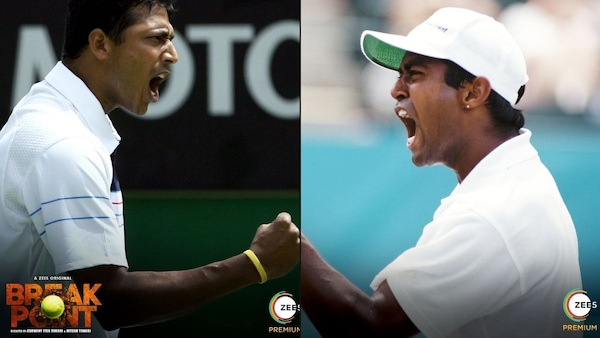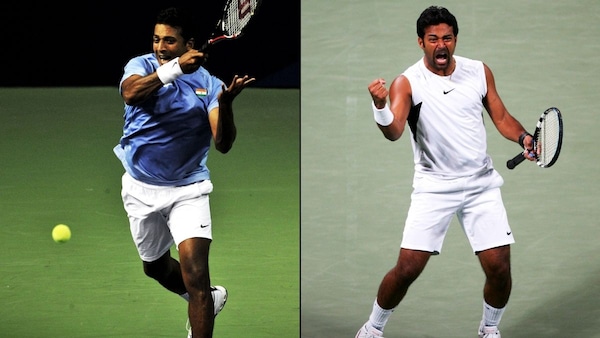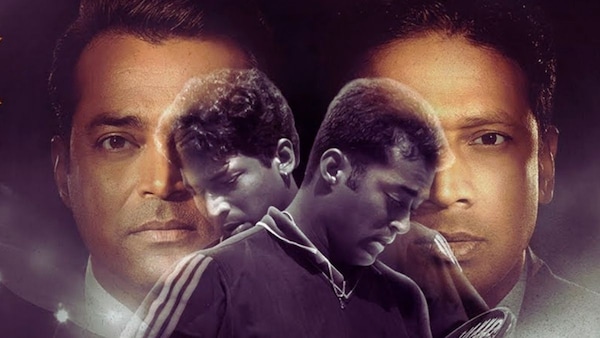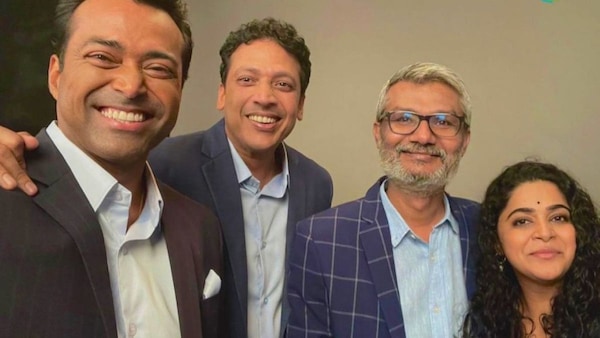Break Point review: This revealing docu offers an unfiltered account of the famous split between the poster boys of Indian tennis
The seven-episode docu-series details the events that tore apart India’s most successful tennis pair

Last Updated: 12.14 PM, Oct 01, 2021
Story: The docu-series divulges the events, instances, and exchanges that led to the rift between India’s most-celebrated tennis duo, Leander Paes and Mahesh Bhupathi
Review: Dubbed the ‘Indian Express’, ‘Lee-Hesh’, among other media-assigned titles, tennis duo Leander Paes and Mahesh Bhupathi forever seemed an idyllic pair. Often spoken of in the same breath, their fluid collaboration on the court translated in three Grand Slam titles, Davis Cup record for most consecutive wins, and briefly, also the coveted World No 1 ranking. This seven-episode-long docu-series excavates the series of events, exchanges, and misunderstandings that led to deep resentment between India’s foremost tennis pair and eventually, delves into what tore them apart. The series packs a string of interviews with both the tennis legends and their friends, family, and coaches in an attempt to carve a comprehensive picture of what fragmented their relationship.
The docu opens to Paes and Bhupathi as young adults before they became tennis legends and how they forged a friendship much before they collaborated professionally. The trajectory that this linear story takes is obvious but it also ticks all the essential events and milestones in their cumulative and solo careers to convey how their obsession for the sport rode over all else. Like all professional athletes, their common goal was to win or at least not lose. And the stakes only got higher when they reached a level where not winning wasn’t an option. So when Paes and Bhupathi began slipping in tournaments after nailing the Wimbledon and the French Open in 1999, it fragmented their relationship, inflicted them with self-doubt, and compelled them to question their equation. And their lack of communication and evasive attitude towards their differences left a gaping hole in their partnership that couldn’t be filled.
The series may be about their famous feud fuelled by their infamous egos but it’s also packed with childhood anecdotes and stories that subliminally touch upon the insular and committed life of a sportsman. So, we’re also sensitised about how most pro athletes are often denied a regular childhood and forced to stick with the game, only so that they can hone their skills to the best of their abilities. Paes, who’s visibly more expansive in his interactions with the media, is also the more articulate of the two and pulls clapbacks that are sharp and incisive. Apart from mulling over his failed professional partnership and quoting Kipling while describing the Wimbledon, he also examines the challenges and single-minded focus that athletes at the top of their game must endure, knowing too well that their careers would only last for as long.

The constitution of compelling docus lately has been to package revelations to the extent of reality TV. The escalating tension that rises like a crescendo, the gradual unraveling of facts laced with decided hype and conjecture, and the pointed questions that leave the interviewees baffled, awkward, and thus, forced to tell it like it is. In this series too, some of the best moments have to be those when Paes and Bhupathi were quizzed on controversial incidents from their past and both respond with their distinguished versions of the exchange and how they couldn’t see otherwise at the time. There’s also a voyeuristic appeal in getting access to apparently insignificant nuggets such as Paes texting Bhupathi after reaching the airport when the two were to head for a tournament but not getting a response. And it is telling instances like this that allow viewers to make a lot more from the unsaid than what is actually spelled out.

Directed by another duo, Ashwiny Iyer Tiwari (Bareilly Ki Barfi, Nil Battey Sannata) and Nitesh Tiwari (Dangal, Chhichore), the task here was clearly cut out: assemble the events that took place two decades ago in the lives of the tennis doubles champs and get the various respondents to reflect on them without much editorialising. The role of the makers here was restricted to drafting a narrative based on facts and nudging the voices just enough to delve into sensitive matters in an attempt to seek the truth. And in doing so, the director couple scores high. Sure, their choice of subject — the world’s most celebrated tennis duo known for their magnetic chemistry on the court struggling to retain the same off it — offered enough fodder for film. But delivering a compelling docu-series is often a matter of chance as one can never precisely moderate the kind of material one may chance upon. For instance, in the sequence where Bhupathi, who had once accused Paes of throwing a game only to deny his partner from winning an Olympic medal, is asked to comment on the allegation, he’s tongue-tied. He vehemently dismisses that Paes would ever throw a game, but about not wanting him to win an Olympic medal, he trails away. And there’s a lot said in this incomplete sentence than what he could’ve actually put in words.

The background score for a documentary series is essential in setting the tone and mood and if used judiciously, can elevate the overall impact. The best background scores have forever been muted and mangled into the proceedings on the screen and have been successful only when their contribution has gone unnoticed. But that is precisely an area this docu-series fails to impress. The score, which seems like jaded stock tracks, is too deliberate and compartmentalised. The cheerful strumming of the guitar to go with the lighter moments, the tense violin shredding to amplify the match sequences — it cumulatively only distracts one from the proceedings. And this seems particularly needless given that the compelling content at hand alone would’ve helped this show pull through.
Verdict: To enjoy this series, one doesn’t need to be a tennis buff or have closely followed the lives and careers of the tennis legends in question or even be aware that Bhupathi was a master of dipping the returns or that Paes could close the nets like no other. It makes for a riveting watch for just about anyone who hopes to get an insider’s view of what broke them up.
Subscribe to our newsletter for top content, delivered fast.

